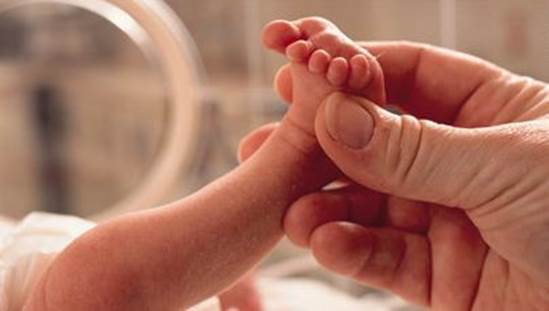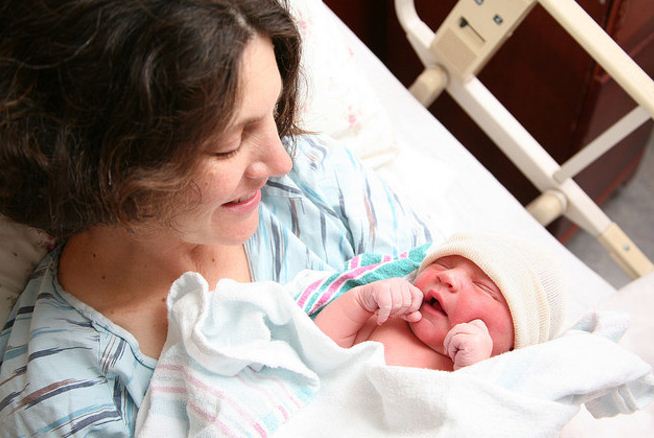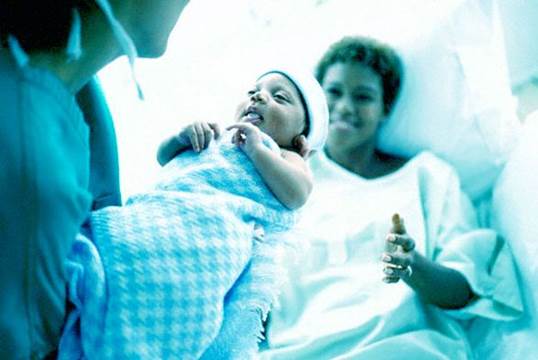After a caesarean section (C-section), most
mothers and babies stay in the hospital for about three days. You will be
encouraged to get up and walk very soon after the procedure. Moving around can
speed your recovery and help prevent constipation and potentially dangerous
blood clots.

After
a caesarean section (C-section), most mothers and babies stay in the hospital
for about three days.
During your hospital stay, the nurses will
monitor your incision for signs of infection and also monitor your movement,
how much fluid you’re drinking, and bladder and bowel function. Discomfort near
the incision can make breastfeeding somewhat challenging. Ask your nurse or the
hospital’s lactation consultant to guide you on how to position yourself and
support your baby so that you’re comfortable.
Sometimes trying to breastfeed when you’re
in pain might make the process more difficult. Don’t refuse medications for
your post-surgical pain.
It takes around four to six weeks for a
C-section incision to heal. Fatigue and discomfort are common. You are not only
post-partum, but also post-surgery!
Take it easy: Rest when possible. Try to keep everything that you and your baby
might need within reach. For the first few weeks, avoid lifting from a
squatting position or lifting anything heavier than your baby.
Support your abdomen: Use good posture when you stand and walk. Hold your abdomen near the
incision during sudden movements, such as coughing, sneezing or laughing. Use
pillows or rolled up towels for extra support while breastfeeding.
Drink enough fluids: Drinking water and other fluids can help replace the fluid lost
during delivery and breastfeeding, as well as prevent any constipation.
Take medication as needed: Most pain relief medications are prescribed with breastfeeding in
mind.

Sometimes
trying to breastfeed when you’re in pain might make the process more difficult.
Avoid stairs and lifting until your doctor says these activities are okay.
Don’t drive:
until your doctor says it’s okay. Also wait until you can make sudden movements
and wear a safety belt properly without discomfort.
Avoid sex:
Doctors usually recommend waiting four to six weeks to have sex to reduce the
risk of infection, increased bleeding, or re-opening healing tissue. Begin
slowly, with kissing, cuddling, and other intimate activities. You’ll probably
notice reduced vaginal lubrication (this is due to hormones), so a water-based
lubricant might be useful. Try to find positions that put less pressure on sore
areas and are most comfortable for you. Pain is greatest in the first few days
following surgery and should gradually subside. Your doctor will advise you on
precautions and considerations to take after surgery.
Whether you had a vaginal delivery or
C-section, it’s important to know when to contact your health care provider.

You’ll
probably notice reduced vaginal lubrication (this is due to hormones), so a
water-based lubricant might be useful.
Make the call if you experience:
Any signs of infection such as a fever
higher than 38°C, severe pain in your abdomen or redness, swelling and
discharge at your incision site or episiotomy /tear site.
Breast pain accompanied by redness or
fever.
Foul-smelling vaginal discharge
Painful urination
Bleeding that soaks a sanitary napkin
within an hour or contains large clots
Leg pain or swelling
It took your body months to prepare to give
birth, and it takes time to recover. If you’ve had a caesarean section, it can
take even longer because surgery requires a longer healing time. If it was
unexpected, it may also raise emotional issues.

It
took your body months to prepare to give birth, and it takes time to recover.
The first few days at home are exciting and
emotional, but also a time to rest and recover. You need to focus your energy
on yourself and on getting to know your new baby. Even though you may have
requests for visits from family and friends, limit visitors and get as much rest
as possible.
Don’t expect to keep your house perfect.
You may find that all you will do is eat, sleep, and care for your baby. Learn
to pace yourself from the first day that you arrive home.